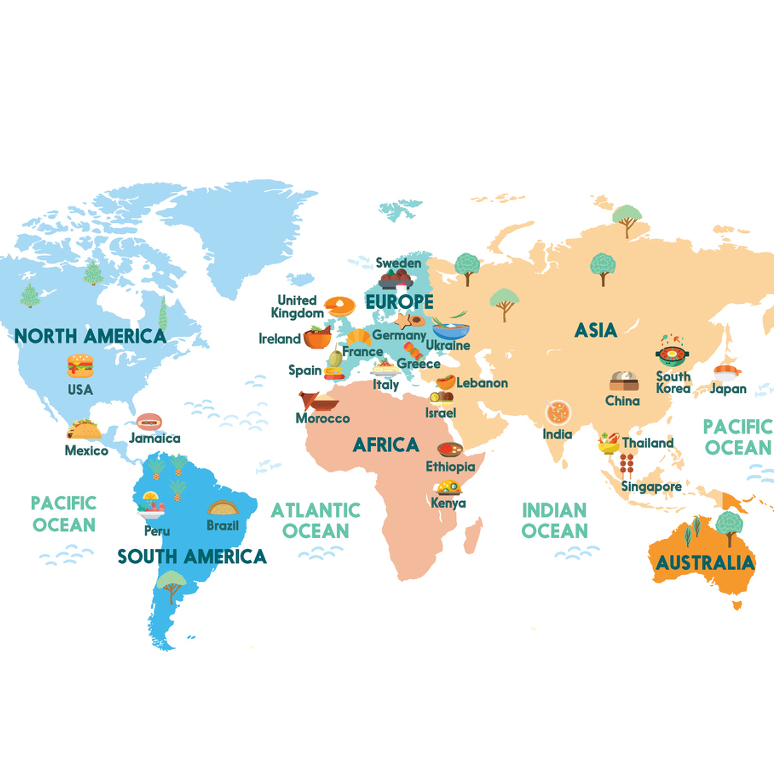The United Kingdom, also called the UK, is made up of four countries: England, Scotland, Wales, and Northern Ireland. You can find the islands that make up the UK in the northeast of Europe.
The island of Great Britain (which includes England, Scotland, and Wales) and the northeastern part of the island of Ireland (Northern Ireland) is surrounded by the Atlantic Ocean, the North Sea, the English Channel, and the Irish Sea. Let’s explore the awesome history of the United Kingdom!

Ancient Times in the UK
Long before recorded history, the islands were inhabited by various prehistoric communities. These early inhabitants left their mark in the form of megalithic structures like Stonehenge, suggesting advanced knowledge of construction and an emphasis on the position of the sun, moon, and stars at particular times of the year.

Around 800 BCE, Celtic tribes migrated to the British Isles, bringing with them their distinctive languages and cultural practices. The Celts established communities across the islands, with intricate social structures and a strong connection to nature.
Here Comes Rome!
The Romans, led by Julius Caesar, invaded Britain in 54 BCE, and a few of the chiefs became his allies. But it wasn’t until 43 CE that Emperor Claudius invaded and established control over parts of the islands. Roman rule brought significant infrastructure development, including roads and Hadrian's Wall, which separated the northern part of Britain from the south. The Romans also introduced Christianity to the region.

New Cultures Come to the UK
As Roman influence waned, waves of Anglo-Saxon settlers arrived, shaping the early medieval period. This era also witnessed Viking raids and invasions, particularly during the 8th and 9th centuries. The Vikings, known for their seafaring skills, left a lasting impact on the cultural and genetic makeup of the region like red hair and blue eyes.

In the 9th century, Alfred the Great successfully defended the Anglo-Saxons against Viking invasions. His reign laid the foundation for the unification of England. By the 11th century, distinct kingdoms had emerged on the islands. England, Scotland, and Wales were separate entities with their own rulers, cultures, and traditions.
Norman Invasion
William the Conqueror from Normandy (now part of France) invaded England in 1066, marking the Norman Conquest at the Battle of Hastings. This famous battle was immortalized in the famous Bayeaux Tapestry.
Fast forward to the Tudor era to find famous monarchs like Henry VIII, known for his six marriages and the separation of the Church of England from the Roman Catholic Church.
In the 17th century, England faced a Civil War between supporters of the king and those who wanted more power for Parliament. This led to the temporary establishment of a republic under Oliver Cromwell. The monarchy was later restored with King Charles II.
Modern Times
The 18th century brought the Industrial Revolution, changing the way people lived and worked. The British Empire expanded around the world, becoming the largest empire in history leading to the saying “The sun never sets on the British Empire.” Queen Victoria, who reigned in the 19th century, oversaw a time of great progress and expansion.

The 20th century saw the UK involved in both World Wars, and major social and political changes occurred. Today, the UK is a constitutional monarchy with a rich history that has shaped the world we know.
Now that we’ve covered the historical information, let’s dive into some fun facts about the UK you may not find in your regular history books!
Fun Facts From the UK
Medieval knights rocked shiny armor and challenged each other to epic jousting battles. But in the margins of old books and tapestries, you’ll find the knights battling…snails! Historians believe the snails represented a particular group of people, but the images tell a funny tale!
Perfume use hit an all-time high during the reigns of King Henry VIII and Queen Elizabeth I. Back in the day, the royals were all about smelling fresh, so they doused themselves in all sorts of scents. Queen Elizabeth I couldn’t tolerate bad smells and was known for her love of sweet-smelling flowers. She even ordered all public places to be perfumed!
Did you know that tea was once so valuable that people went to extreme lengths to get their hands on it? In the 18th century, stealing tea was considered a serious crime. There were even tea heists where daring thieves would sneak into ships and steal crates of this precious beverage. It's safe to say that back then, tea was more valuable than treasure!

The UK has a history of some seriously quirky laws. Believe it or not, it was once illegal to handle a salmon in suspicious circumstances. What constitutes a "suspicious circumstance" for a fish, you ask? We're not quite sure, but we do know that it's one fishy law! And if you’re thinking of pranking your neighbor, it’s illegal to knock on a door or ring a doorbell in the UK and then walk away!
Who knew? Some of the UK's monarchs were secret music maestros! Queen Victoria was quite the piano virtuoso, while Queen Elizabeth II was known to dance to the Beatles. And King Henry VIII played several instruments, including the lute, organ, flute, and harp, and composed music and poems, including some for his first wife, Catherine of Aragon.
Now you know some of the history and fun facts about the United Kingdom. Expand your eat2explore adventure by tasting some of the delicious recipes and ingredients from England, Scotland, Ireland, and Wales found in our explore United Kingdom box! You can also check out our Europe explorer box to learn more about other countries.







